2019 In America Survey: My Inner Life With Asthma
Life is different when you have asthma.
Sometimes the outside doesn’t necessarily reflect what’s happening on the inside. We’re bringing the emotional and mental aspects of this “invisible illness” to the surface. Results from our 4th (2019) In America Survey showcase how community members are managing their emotional well-being and where we can all come together to improve and feel connected.
Asthma can impact different aspects of our lives
Many members of the asthma community talk about how difficult it can be to regularly engage in hobbies, maintain social relationships, eat certain types of food, and manage growing anxiety. Avoiding triggers is hard enough, but managing them in addition to what our daily life requires of us can be draining.
Almost half of the 1,018 people who completed the survey expressed that they feel anxiety about having an attack, catching a cold, encountering triggers that may cause a flare, and more. Needless to say, asthma affects more than just our lungs.
Managing asthma is easier with support
Many people would say that life, in general, is easier with help. Having a chronic condition like asthma amplifies that need. However, 44 percent of our community manages their asthma alone.
Support can be given in a variety of ways
There are tons of ways to provide support to our loved ones. While some people need a shoulder to lean on, some need help getting to doctor’s appointments, managing their finances, or with day-to-day tasks like doing the dishes.
Are you a person with asthma who needs support from a loved one? If so, do you know what you need?
Out of all the types of support we listed:
- 44 percent said they received emotional support
- 41 percent said they had help with household duties
- 25 percent have someone take them to doctor’s appointments
- 14 percent had help finding coping strategies
Are you a caretaker for someone with asthma? Have you asked them how they would like to be supported?
Of the 1,018 respondents:
- 16 percent expressed needing help with household duties
- 16 percent need more emotional support
- 16 percent need help finding coping strategies
- 9 percent need assistance with managing finances and paying bills
It’s hard to share our anxieties about asthma
Even though members of the community feel comfortable sharing their asthma diagnosis with their friends and family, most open communication tends to stop there. Many struggle with talking about how asthma has taken a toll on their emotional well-being.
But it doesn’t mean our anxieties are not there
It’s not always easy sharing personal or emotional experiences when it comes to asthma. Our survey indicated that most people in our community are experiencing an increased level of anxiety, limited social interaction, and reduced self-confidence due to factors like weight gain.
Erasing the stigma of emotional health conversations regarding asthma
Asthma affects more than just our lungs. While it may cause coughing, wheezing, or shortness of breath, it also causes anxiety and uncertainty.1,2
Even though it’s often challenging to talk about the emotional impact of asthma, our community offers the space to share, connect with others, and receive support.
Taking pride in nurturing our emotional well-being with thoughtful conversation and open communication is the first step toward building a community of strength, trust, kindness, and understanding, so no one has to experience their asthma alone.
If you haven’t officially joined our community yet, you can do so here.
The 2019 Asthma in America survey was conducted online from April 2019 through May 2019. The survey was completed by 1,018 people living with asthma.

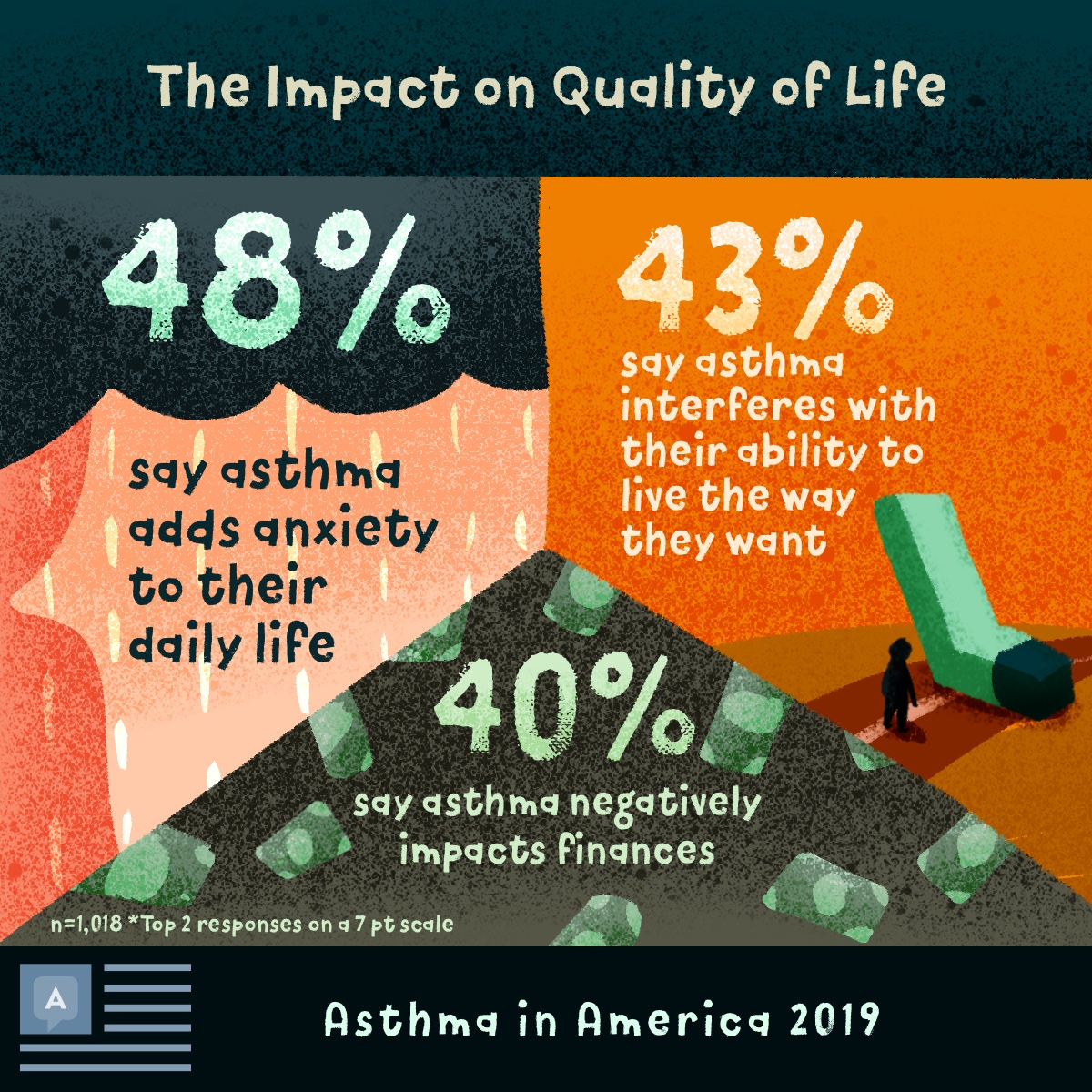
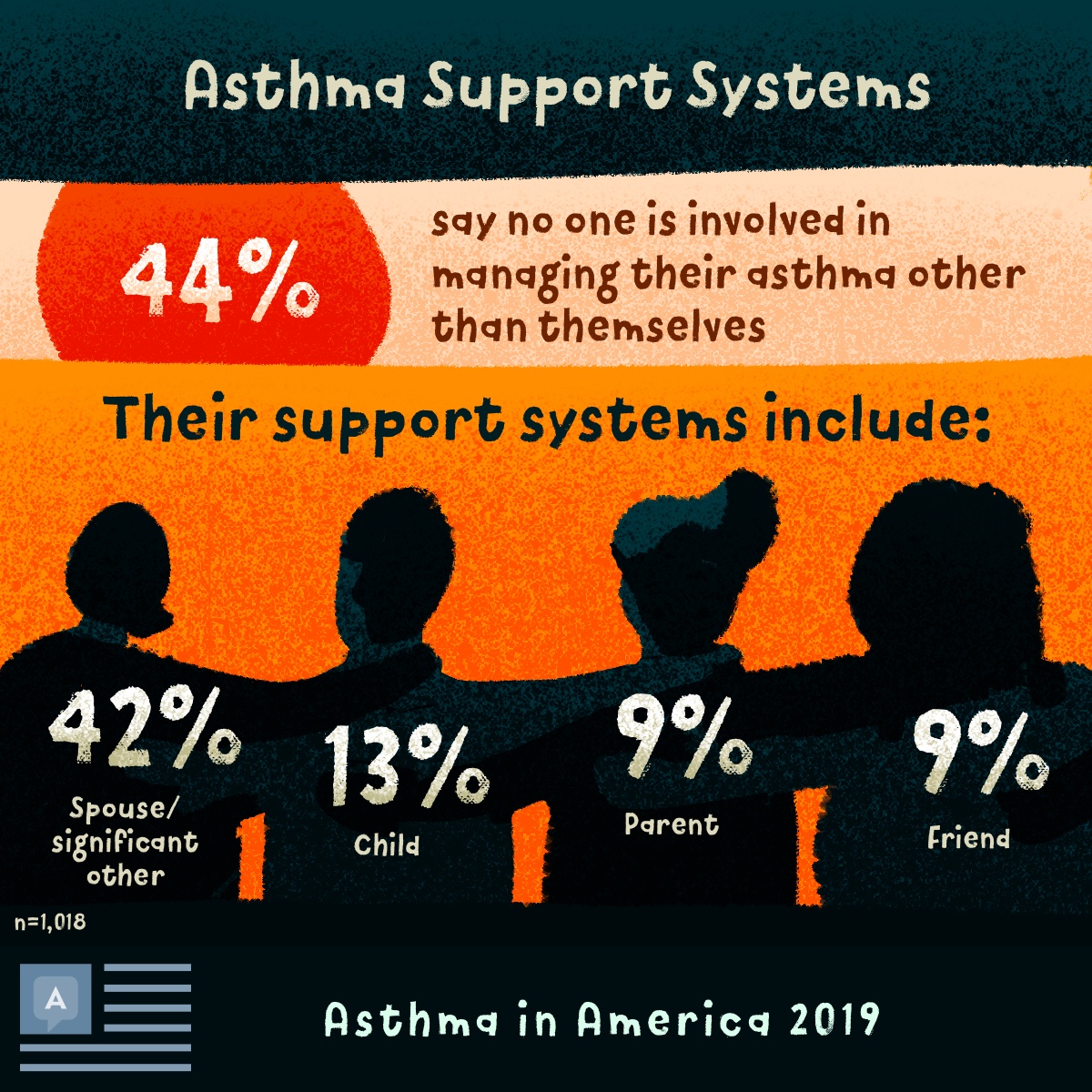
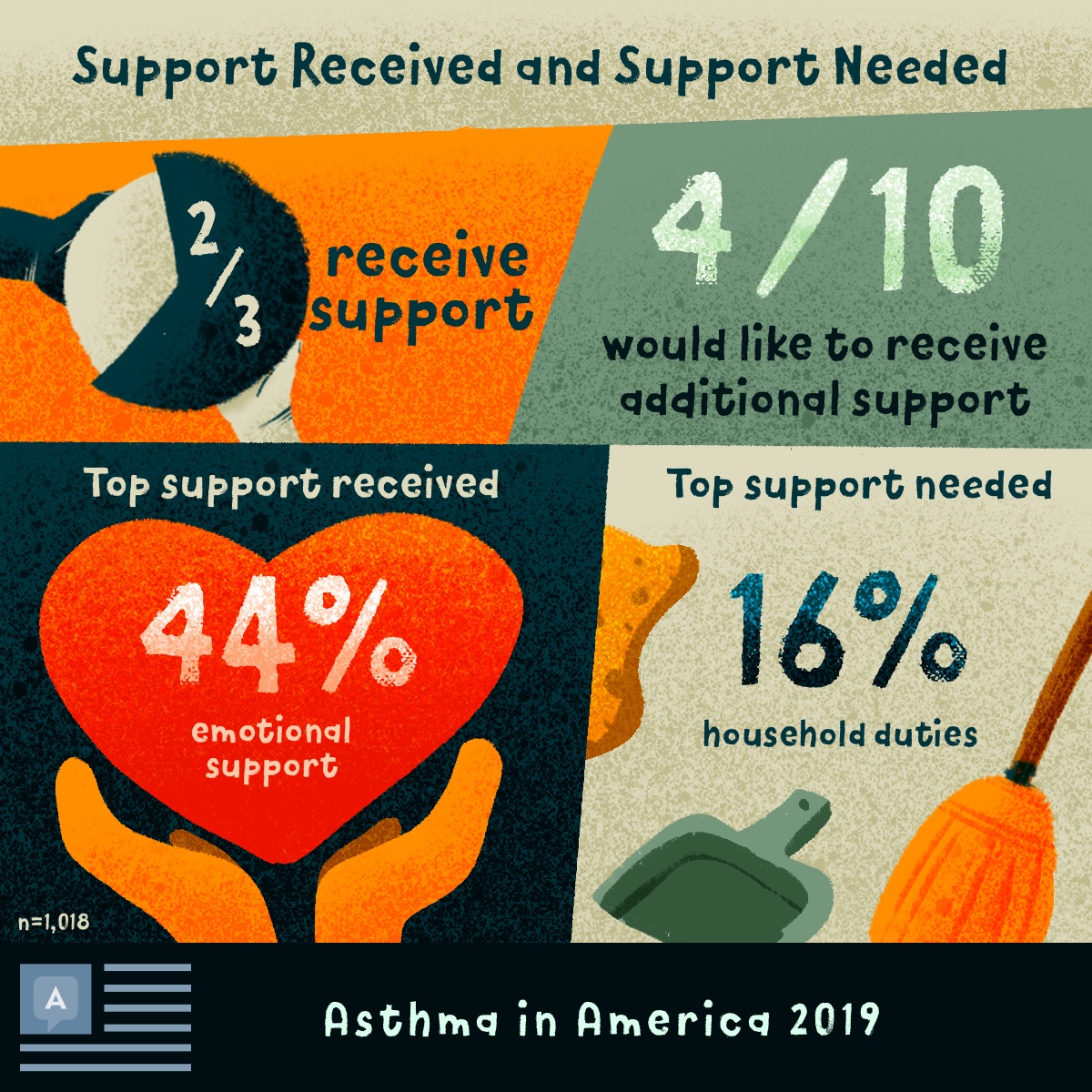
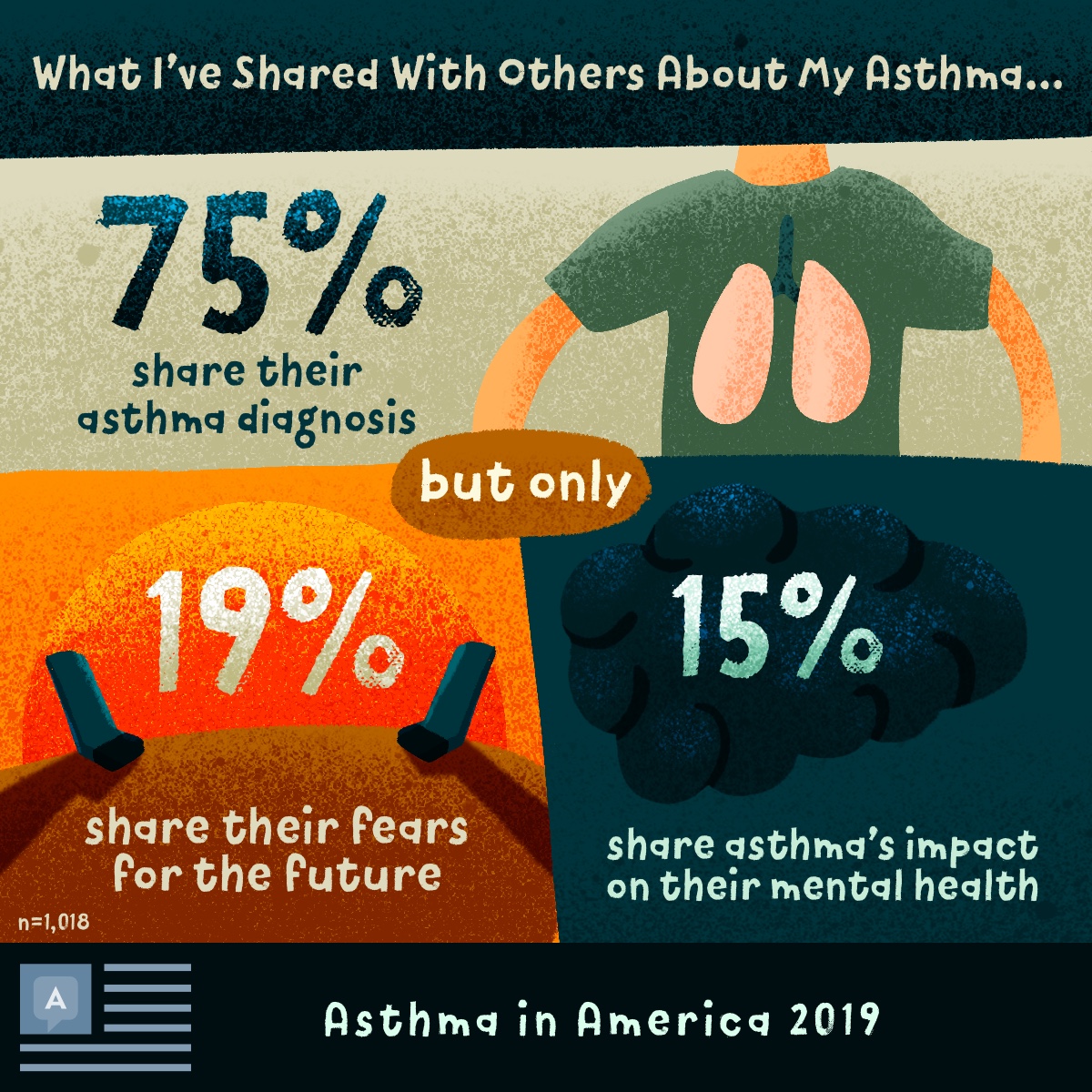
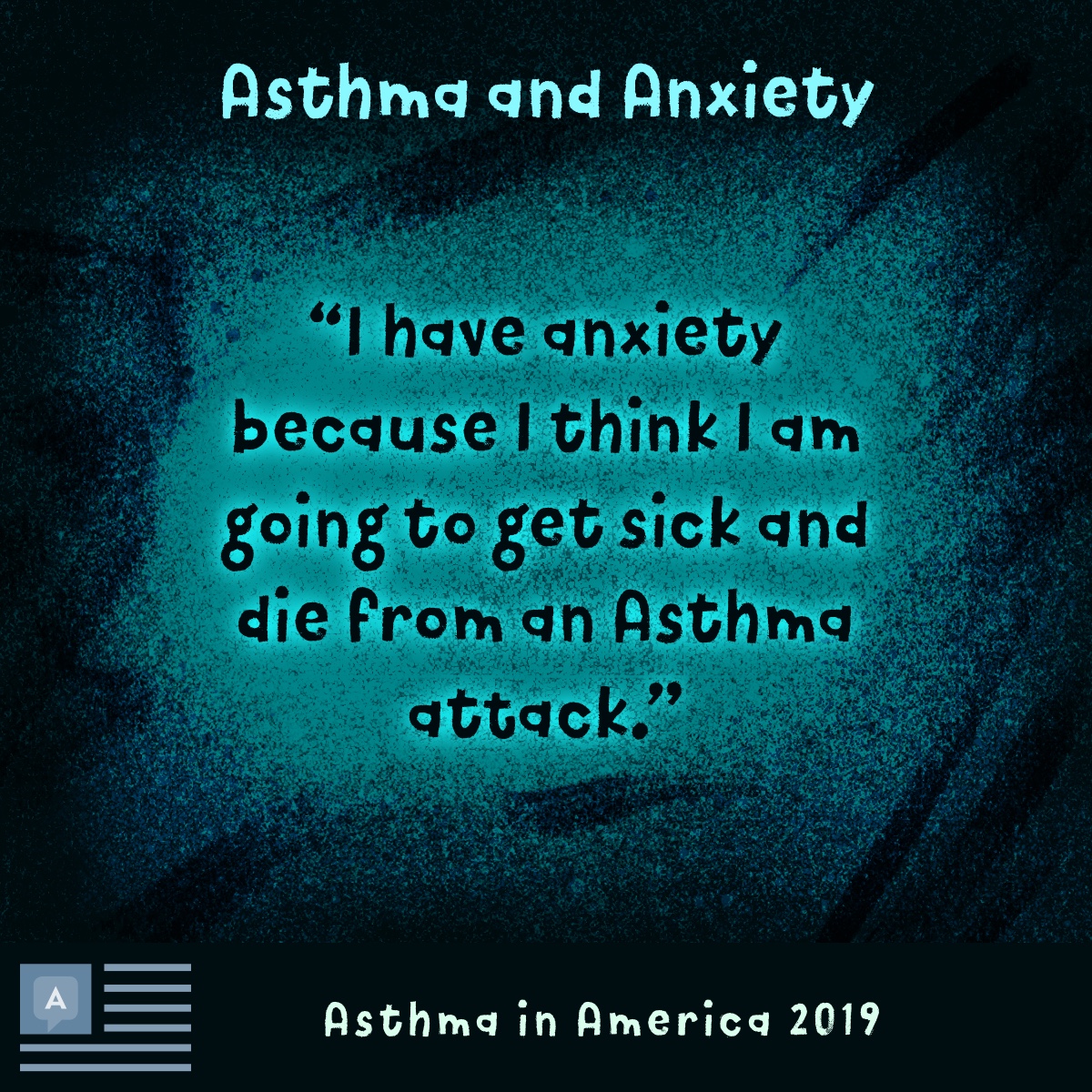
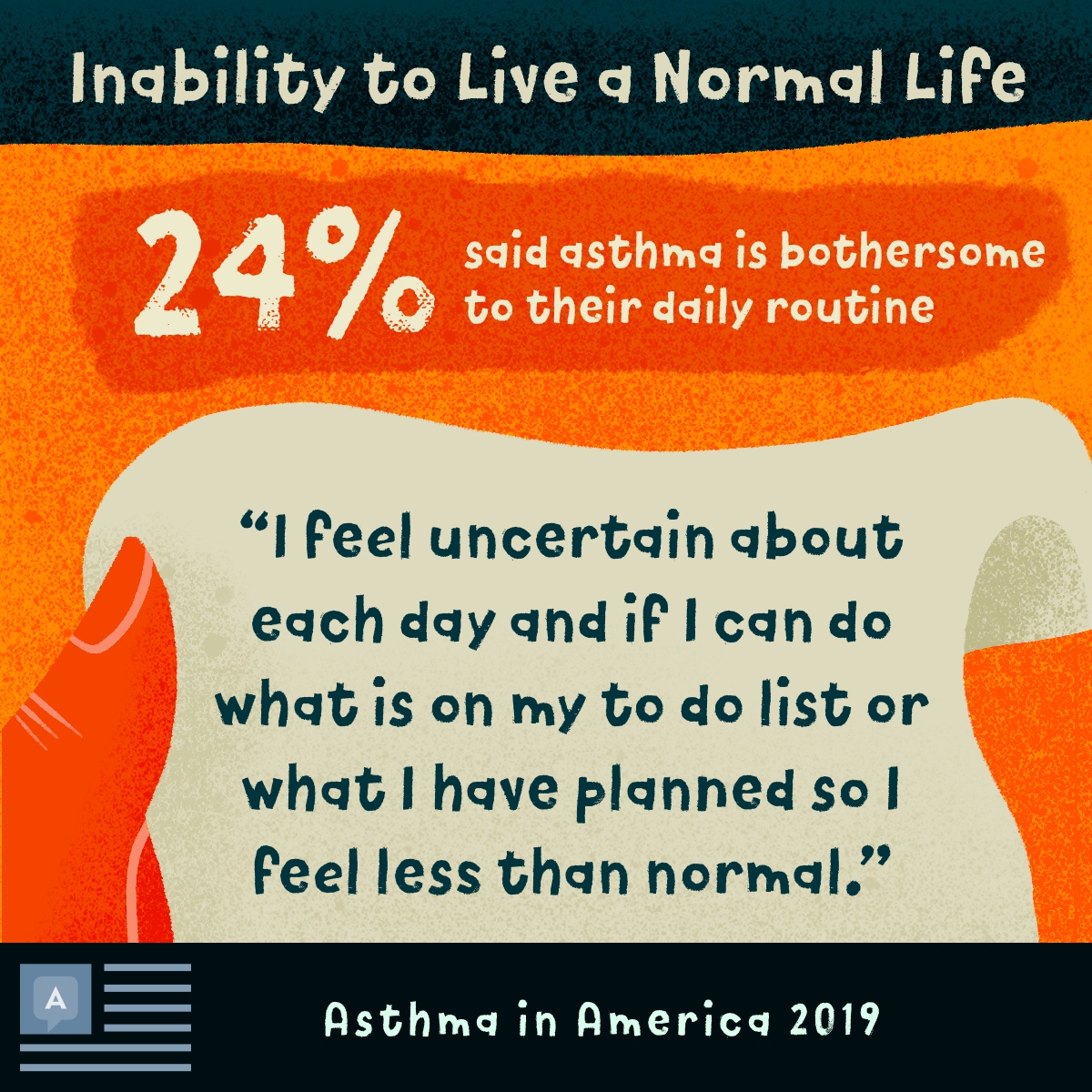
Join the conversation